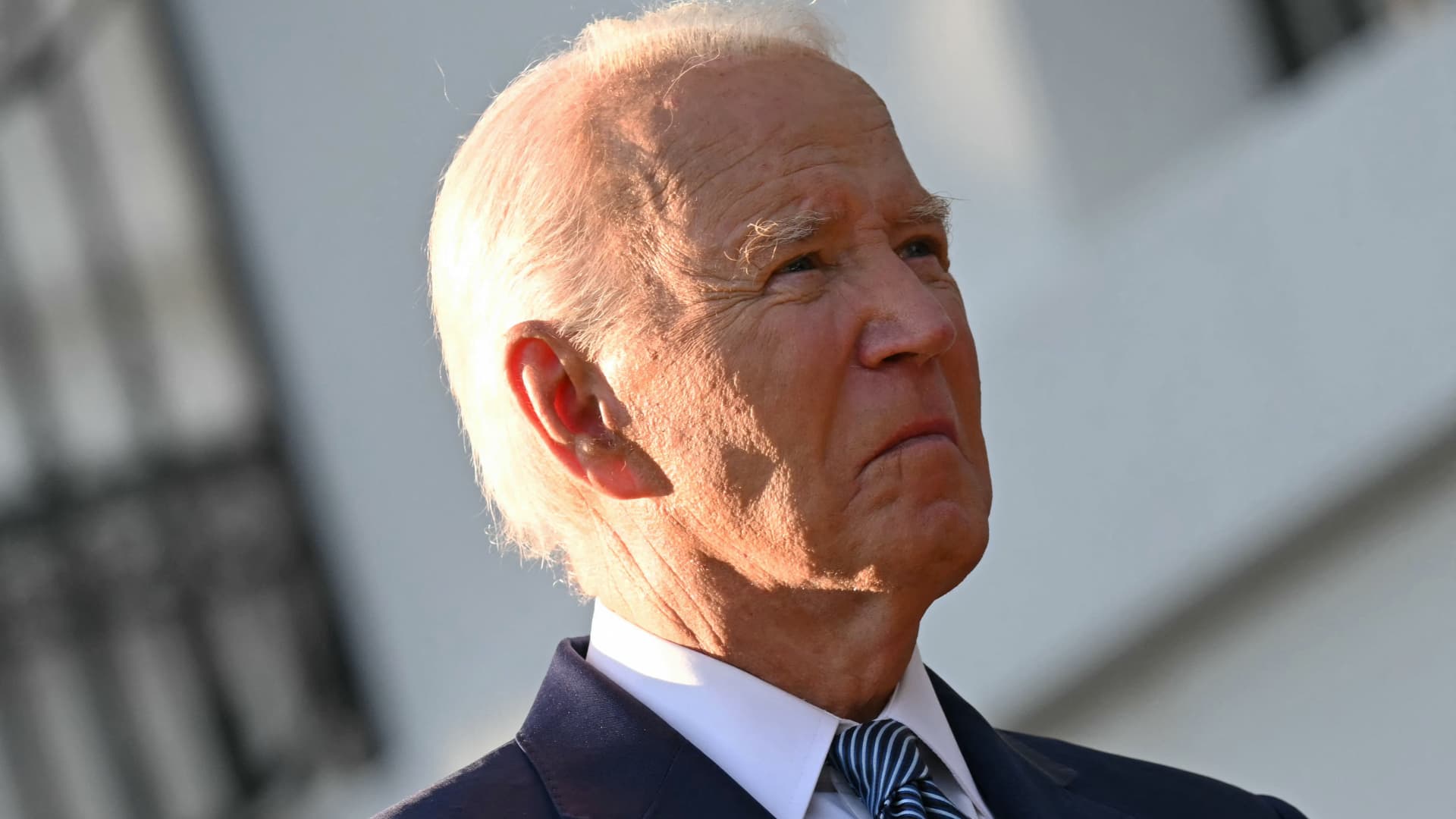US President Joe Biden looks on before speaking ahead of the 30th anniversary of the Violence Against Women Act on the South Lawn of the White House in Washington, DC, September 12, 2024.
Andrew Caballero-Reynolds | AFP | Getty Images
A federal judge has extended a temporary restraining order against the Biden administration’s latest student loan forgiveness plan, threatening the White House hope to provide financial relief to tens of millions of Americans ahead of the Nov. 5 presidential elections.
U.S. District Judge Randal Hall, appointed by former Republican President George W. Bush, said Wednesday that he would maintain the order blocking the Biden administration from forgiving student debt for an additional 14 days.
In the meantime, Hall said he would review the plaintiffs’ request for a preliminary injunction against the Biden’s relief plan, and the Biden administration’s request to dismiss the case.
The continuation of the restraining order is the latest setback for the Biden administration’s efforts to cancel people’s federal student loans. President Joe Biden began promising to alleviate people’s education debts during his 2020 campaign bid, but Republican legal challenges have consistently stymied his attempts.
The development stems from a lawsuit against the president’s aid package brought by seven GOP-led states earlier this month. The states — Alabama, Arkansas, Florida, Georgia, Missouri, North Dakota and Ohio — said the U.S. Department of Education’s new debt cancellation effort, like its previous attempts, is illegal.
The states also accused the Biden administration of trying to secretly implement the plan before the final rule on the program was issued in October, which would violate rules around the timeline of new regulations.
However, a Biden administration official told CNBC on Sept. 11 that the Education Department did not plan to begin forgiving up to $147 billion in student debt for as many as 25 million Americans until it was allowed to do so.
Hall first issued a temporary restraining order against Biden’s debt plan on Sept. 5, shortly after the states sued.
Biden’s plan would have forgiven student debt for four groups of borrowers: those who owed more than they originally took out, people who’ve been in repayment already for decades, students from schools with a low financial value and those who qualify for loan forgiveness under an existing program but haven’t applied.
As many as 3 in 4 federal student loan holders were expected to benefit from the policy, when included with the Biden administration’s previous debt relief efforts, according to an estimate by the Center for American Progress. Over the summer, the Biden administration emailed millions of student loan borrowers, alerting them that the debt forgiveness was on the way.
During the presidential debate on Sept. 10, former President Donald Trump likened Democratic nominee and Vice President Kamala Harris’ promise to protect the right to abortion in the U.S. to Democrats’ vows to cancel student debt.
“It’s just talk,” Trump said. “You know what it reminds me of? When they said they’re going to get student loans terminated and it ended up being a total catastrophe.”
“They didn’t even come close to getting student loans,” he added later. “They taunted young people and a lot of other people that had loans. They can never get this approved.”
But it has been Republican officials who have tried to block the relief, and Republican judges who have ruled against the aid packages, said Luke Herrine, an assistant professor of law at the University of Alabama.
When the Supreme Court struck down Biden’s first wide-scale attempt at student loan forgiveness in June 2023, the 6-3 vote was split on ideological lines, with the liberal justices voting to uphold the program.

